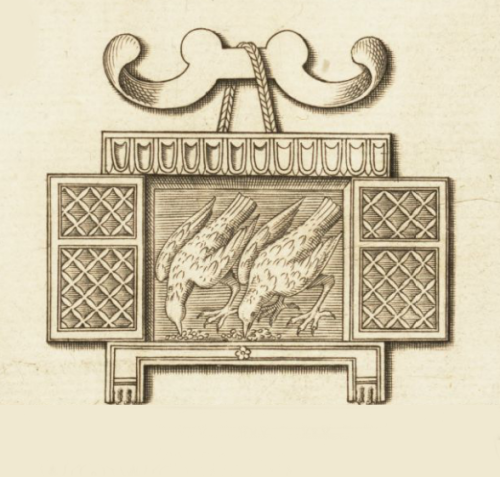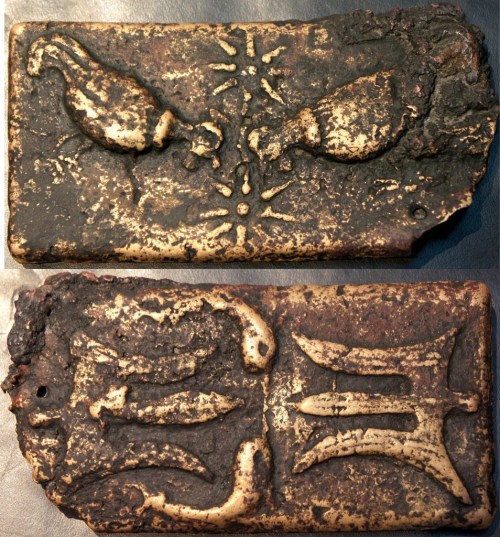peashooter85:The Sacred Chickens of Ancient Rome,In Ancient Rome the Sacred Chickens were a roost of
peashooter85:The Sacred Chickens of Ancient Rome,In Ancient Rome the Sacred Chickens were a roost of…sacred chickens that were used for divination by Roman priests. Revered for their ability to give portents of the future, the chickens were attentively raised and kept by the priests, hence why depictions of Roman priests often show them with chickens.To use the Sacred Chickens for fortunetelling, feed would be spread around the ground and the chickens set loose. If the chickens ate voraciously then a favorable outcome could be expected. If not, then an unfavorable outcome was expected. If a favorable outcome was needed, then the chickens would be kept in cages for a period of time without food before being set loose, which seems to me no different than shaking a magic eight ball repeatedly until you get the right answer. Regardless, the portents of the Sacred Chickens were taken very seriously, and matters of state or military were not conducted until first consulting with the chickens. If this sounds ridiculous and you are forming a superior attitude toward our modern society, know that as someone born and raised close to Punxstuwaney, Pennsylvania, I don’t believe that we are much more enlightened than the Ancient Romans.In 249 BC during the First Punic War, the Roman Consul Publius Claudius Pulcher was leading a fleet of 120 Roman warships on a surprise attack on the Carthaginian port of Drepana. When feed was spread out on the deck of the ship, the chickens refused to eat, signaling that the attack was doomed to failure. Pulcher, believing the Sacred Chickens to be superstitious nonsense, ordered the chickens cast overboard exclaiming“Bibant, quoniam esse nolunt” (Let them drink if they will not eat) . The morale of the Roman fleet spiraled downward. After all how could one conduct a successful military campaign without good portents from the Sacred Chickens? When the fleet attacked the port, it made a clumsy and slow advance against the harbor, thus losing the element of surprise. The Carthaginian fleet quickly mobilized and attacked the Romans, sinking or capturing 93 Roman ships. Ignore the Sacred Chickens at your own peril! -- source link
Tumblr Blog : peashooter85.tumblr.com


